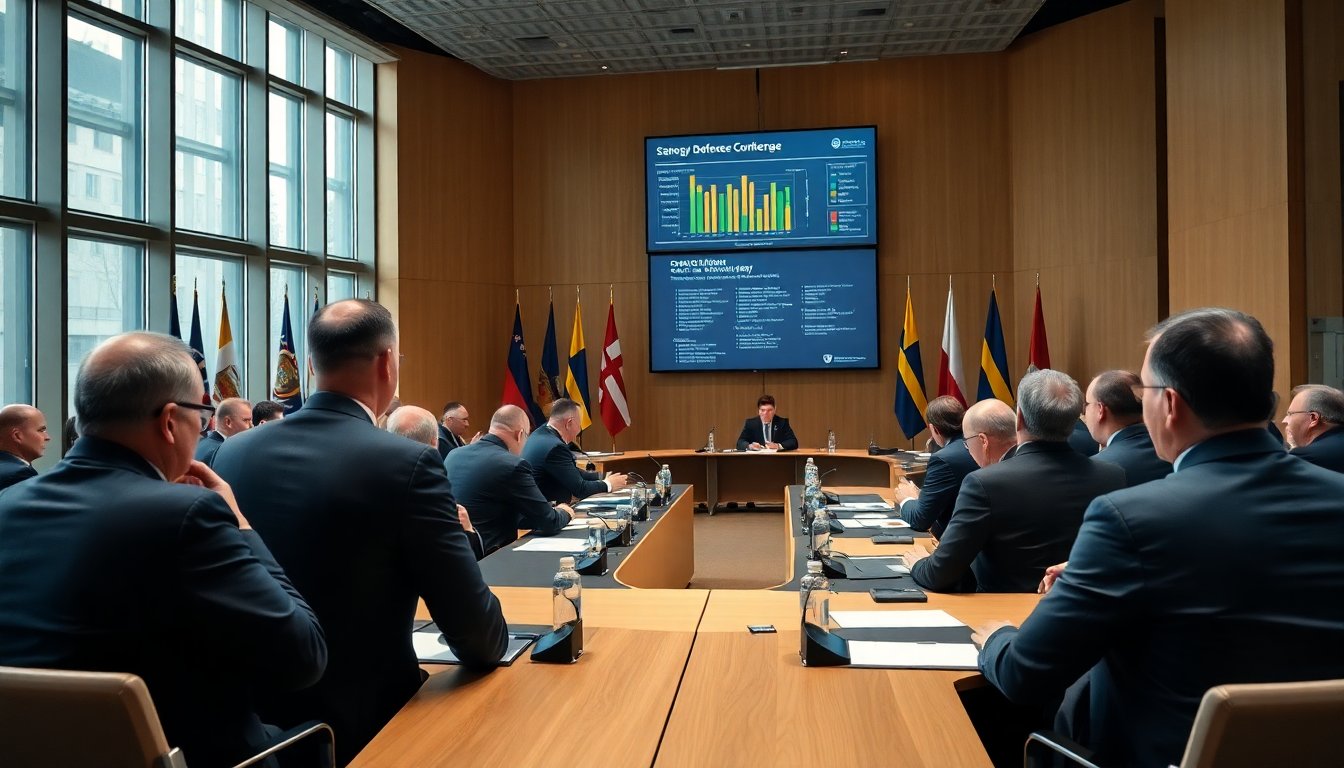Table of Contents
In the evolving landscape of European security, the recent Berlin Security Conference has underscored important discussions among military leaders. Decision-makers from various nations gathered to address critical issues such as deterrence, military buildup, and the future of NATO. This year’s conference featured Sweden as the partner nation, highlighting its growing significance in regional defense.
During the conference, Pål Jonson, Sweden’s Defense Minister, spoke about the notable changes in his country’s defense posture as it moves closer to NATO membership. This shift reflects a broader strategic reassessment of security dynamics in the Nordic region, particularly amid ongoing tensions in the Baltic Sea.
Sweden’s pivotal role in Baltic security
The geopolitical situation around the Baltic Sea has become increasingly complex, characterized by escalated Russian provocations. Minister Jonson emphasized the need for clear operational guidelines regarding the deployment of drones and related technologies. Discussions revealed a deepening integration of security policies between Germany and Sweden, fostering a collaborative defense approach.
Historical context of Sweden’s defense transformation
Traditionally, Sweden adhered to a policy of military non-alignment, prioritizing diplomatic solutions. However, the resurgence of hostilities in Eastern Europe, particularly due to Russia’s aggressive actions, has necessitated a comprehensive reevaluation of defense strategies. The decision to pursue NATO membership signifies a commitment to collective security and a proactive stance against potential threats.
As part of its NATO integration, Sweden’s military readiness is being bolstered through increased investments and joint exercises with allied forces. This proactive engagement not only enhances Sweden’s national defense but also contributes to regional stability in Northern Europe.
Collaborative defense strategies between Germany and Sweden
The defense partnership between Germany and Sweden has deepened considerably. Recent agreements emphasize an intent to strengthen military cooperation, particularly in response to shared security challenges. These agreements aim to facilitate joint operations and improve interoperability between their armed forces.
The implications of increased military collaboration
Germany’s Defense Minister, Boris Pistorius, has highlighted the urgency of enhancing European military readiness. This call to action is driven by an awareness of hybrid threats, including cyber warfare, espionage, and disinformation campaigns attributed to Russia. The Baltic Sea, once seen as a channel for cooperation, is increasingly becoming a battleground for geopolitical tensions, necessitating a robust response from European nations.
In light of these developments, collaborative efforts are vital. Sweden’s NATO integration not only elevates its defense capabilities but also strengthens Germany’s strategic position within the alliance. This partnership is crucial for ensuring a united front against any form of aggression.
Emerging threats and strategic responses
As the situation in Ukraine continues to evolve, its implications extend well beyond its borders. The conflict has prompted a reevaluation of energy dependencies and military preparedness across Europe. Recent incidents, including sabotage attempts on critical infrastructure in Poland, underscore the necessity for vigilance and coordinated responses among NATO allies.
Furthermore, the ongoing military support for Ukraine from European nations, including Germany and Sweden, reflects a dedication to countering Russian advances. By providing financial assistance and military equipment, European countries reaffirm their commitment to maintaining stability in the region.
During the conference, Pål Jonson, Sweden’s Defense Minister, spoke about the notable changes in his country’s defense posture as it moves closer to NATO membership. This shift reflects a broader strategic reassessment of security dynamics in the Nordic region, particularly amid ongoing tensions in the Baltic Sea.0


